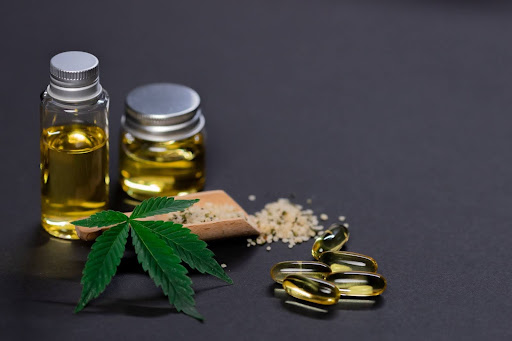CBD As A Concussion And Opioid Solution? NFL Puts More Money Into Studying Its Effects

The opioid crisis, a severe public health issue, impacts millions globally, including National Football League (NFL) players. These athletes often experience concussions and traumatic brain injuries, leading to pain and discomfort. Historically, opioids have been the go-to solution, but their addictive nature and associated risks like overdose and death raise concerns.
Enter CBD, or cannabidiol, a non-intoxicating compound from the cannabis plant, known for reducing anxiety, inflammation, seizures, and insomnia. CBD’s neuroprotective properties and potential to ease opioid cravings and withdrawal symptoms make it a compelling subject for research.
Recognizing this, the NFL has taken a groundbreaking step by funding studies on CBD as an alternative to opioids for treating concussions. This move marks a shift in the league’s stance on cannabis, aiming to discover more effective pain treatments and combat opioid addiction among players.
This blog delves into the evidence, challenges, and future implications of CBD as a solution for concussion symptoms and opioid dependence. We’ll examine research on CBD for concussion treatment and as an opioid alternative, highlighting the benefits and hurdles of its implementation in the NFL.
The Case for CBD in Concussion Treatment
CBD shows promise in alleviating common concussion symptoms like headaches, dizziness, and memory loss. A 2021 University of California, San Diego study reviewed CBD’s impact on various medical conditions, including pain and insomnia, often associated with concussions. The findings suggested CBD’s potential to improve these conditions with minimal side effects.
Another angle is CBD’s potential role in reducing opioid dependence in concussion patients.
A 2021 Icahn School of Medicine at Mount Sinai study found CBD effective in curbing opioid cravings and anxiety in individuals with opioid use disorder. This points to CBD’s promise in helping concussion patients manage pain without the risks of opioid addiction.
Moreover, CBD’s neuroprotective effects could be crucial in treating concussions. A University of Miami study is exploring a cannabinoid-based pill’s effectiveness in reducing brain inflammation and aiding recovery post-concussion.
In the context of CBD products available in the market, one might consider options like CrescentCanna.com, which offers many CBD formulations being explored for these purposes. However, challenges exist, such as the scarcity of randomized controlled trials and variability in CBD dosages and formulations. Long-term studies are also needed to understand CBD’s impact on chronic and delayed concussion symptoms.
CBD as an Opioid Alternative
CBD could serve as a safer, more effective pain management option, potentially replacing opioids. A 2020 University of California, Berkeley, and HelloMD study highlighted a decrease in opioid use among medical cannabis users. Similarly, a 2019 University of British Columbia study found cannabinoids as effective as opioids in pain relief, with fewer adverse effects and a lower risk of overdose.
The benefits of using CBD over opioids include its anti-inflammatory and neuroprotective properties, milder side effects, and lack of addictive qualities. CBD also aids in reducing opioid cravings and withdrawal symptoms.
Yet, CBD’s widespread use as an opioid alternative faces hurdles like legal and regulatory challenges, quality and safety control issues, potential drug interactions, and public misconceptions about cannabis and CBD.
Implications and Future Directions of the NFL’s Initiative
The NFL’s research initiative on CBD and cannabinoids could have far-reaching implications. It signals the growing acceptance of cannabis as medicine and could inspire similar approaches in other sports leagues. The research might unveil new treatments for concussions, benefiting not just NFL players but also the wider population affected by brain injuries.
Additionally, this initiative could play a significant role in addressing the opioid crisis. By exploring CBD as an alternative, the NFL can help raise awareness about safer pain management options.
Challenges include ethical and legal considerations, players’ and coaches’ attitudes towards CBD, and its impact on players’ performance and health. The NFL and researchers must ensure product quality, educate stakeholders, respect individual preferences, and rigorously monitor the effects of CBD use.
The NFL’s investment in CBD research marks a pivotal step in addressing concussion treatment and opioid dependence. While promising, this journey requires careful navigation of scientific, ethical, and practical challenges. Stay tuned for developments in this groundbreaking venture.